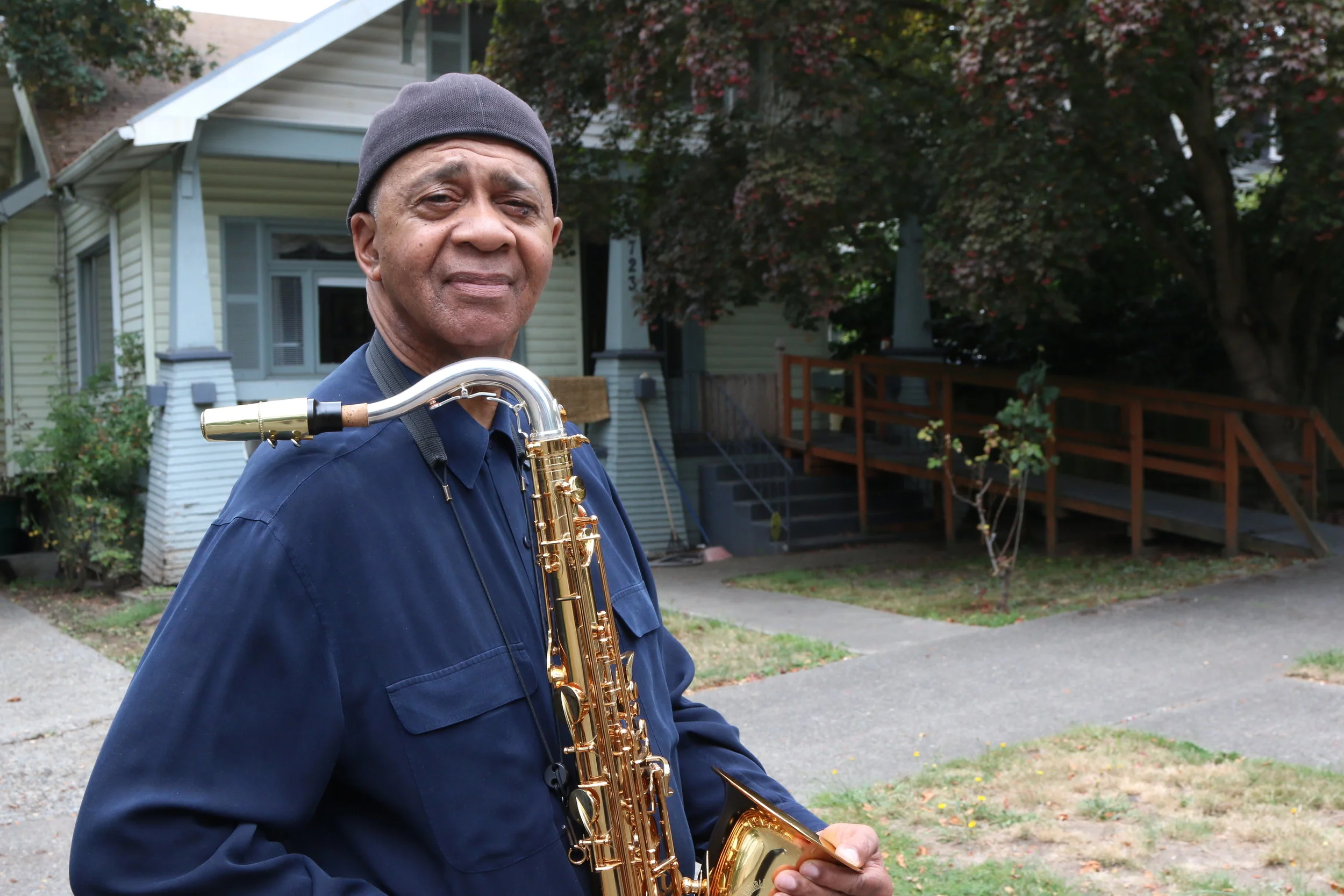Photo by Inye Wokoma
Gary was born and raised on 28th Ave South, in the Central Area. He took up the tenor saxophone while a junior at Garfield High School, played in clubs all over the Central District, and went on to join the first cohort of black jazz students allowed admission to the New England Conservatory, in 1969. He came back to Seattle fifteen years ago to care for his aging mother, who still lives in the home on 28th Ave South, where Gary grew up. He teaches jazz at Ballard High School, and he shops at the Red Apple every day.
Gary Hammon
In my teenage years what I did was, you know, I guess I can say this now. I fell in love with the saxophone. I heard the sound of saxophone as a little boy, the same thing I told you about people coming to my house. My house was a haven. Larry Gossett's father was the guru for music along with Rocky Woods. They'd bring over, they'd have these parties, and there would be music there, and I heard some of the greatest music, I don't care if it was jazz country-western that I'd ever heard in my life, but I heard the saxophone and there was something about that. I said I'm going to play that. I've got to play the saxophone. Wow.
I was in bands and that's what guys did around here. We played for the Masons. We played for the YMCAs. We played for the high schools. We played for the cabarets. Oh we played. So we had a a variety of outlets. Something about Seattle where the music scene was always that way. And I'm gonna backup just a little bit. I remember that Julius Green was like an uncle to me and I would go spend the night at his house, and I remember going to Birdland. I'd go to his house and spend the night, because they had no kids and they'd keep all of us, and we'd go past Birdland. And the bands used to rehearse over in Birdland, and I remember I remember so well when the first time when it was James Moody came to Birdland, and that's when they had matinees and what what a treat, because then I knew then I wanted to play that horn, and I didn't say much.
We also got to the point where we could go in places like 410 Supper Club and Black and Tan. Those were the big clubs, because our groups were good enough, so I mean it was a major outlet. I never, I didn't have to work a job. I played music see. I made real money. That's why kept doing it. I had a car. My dad didn't buy me a car. I had an apartment. So I played music. My brother played music. So it was a big music town and you had places to play.
There were places to play just up the street here from where we are now, where that gas station is, right there that Shell station (16th and Madison), that used to be the Blue Post Tavern, and there were several Blue Post Taverns, and we played in those Blue Post Taverns, you know, and people it would be crowded. So there were openings, and I wasn't old enough to be in there, but I'd be in there, because I played in the band, and as long as I kept quiet, did my job, nobody bothered, nobody said anything.
The segregation was really big at at the Esquire. That's where it was really really big, because it was open after hours, and then down at the 410 Supper Club or the Black and Tan you know, but it was very segregated, because Seattle is very segregated.


